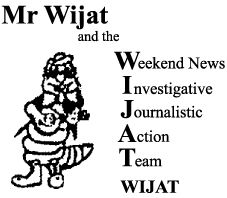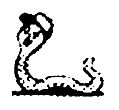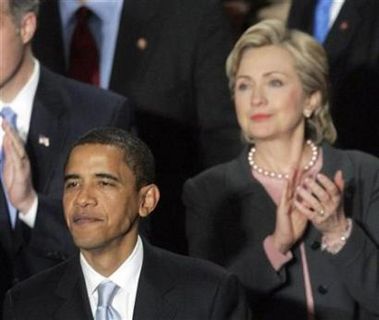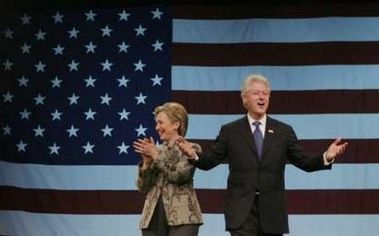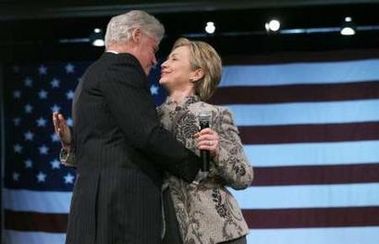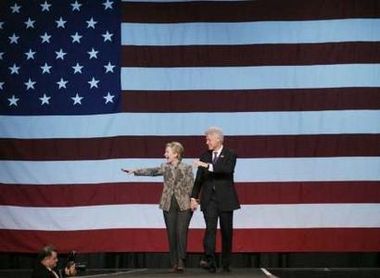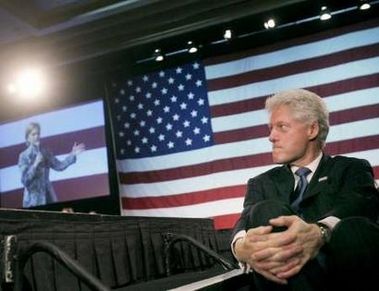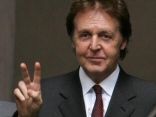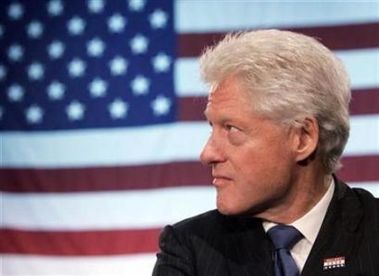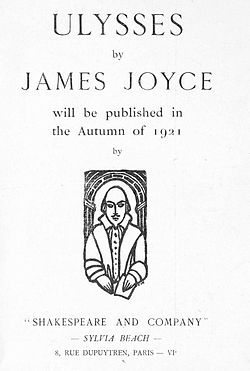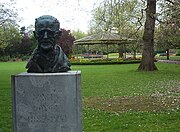13 June 2013
Rupert Murdoch files for divorce from Wendi Deng

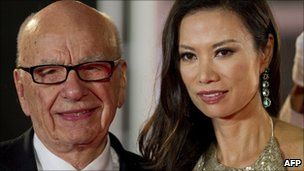
Rupert Murdoch married his third wife, Wendi Deng, in 1999
 Rupert Murdoch has always had a natural flair for popular journalism
Rupert Murdoch has always had a natural flair for popular journalism
When media mogul Rupert Murdoch closed Britain's biggest newspaper, the News of the World, in July 2011 - after it became mired in allegations of phone hacking - he had hoped the move would draw a line under the scandal
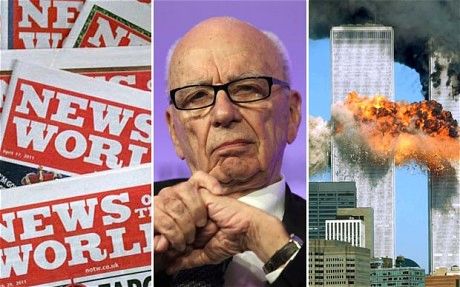
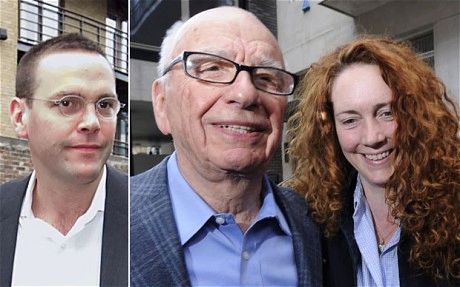






Related Stories
- Profile: Rupert Murdoch
News Corp boss Rupert Murdoch has filed for divorce from Wendi Deng because their marriage has "irretrievably broken down", his spokesman says.
The divorce papers were filed at the New York State Supreme Court.
The couple, married in 1999 aboard a private yacht in New York, have two daughters together, Grace and Chloe.
In 2011, Ms Deng famously leapt to her husband's defence to slap a protester who threw a pie at him as British MPs quizzed him over phone-hacking.
Mr Murdoch, 82, met his Chinese-born third wife in 1997 at a cocktail party in Hong Kong. They were married two years later, weeks after his second divorce.
Pre-nup
Ms Deng, 44, is 38 years younger than the Australian-born media mogul, who is said by Forbes to be worth $9.4bn (£6bn).
The moment Rupert Murdoch was attacked (first broadcast 2011)
"I can confirm for the record that Rupert filed in New York State Supreme Court this morning for divorce," Murdoch spokesman Steven Rubenstein told AFP news agency on Thursday.
The BBC's Robert Peston says the couple had a pre-nuptial agreement and have held shares in trust for their children.
So our business editor believes the divorce is not likely to lessen the magnate's grip on his media empire.
Mr Murdoch, now a US citizen, reportedly paid $1.7bn in his divorce settlement from his last wife.
Ms Deng, said to be the daughter of a factory director, was born in 1968 and grew up in the eastern Chinese city of Xuzhou before leaving for the US at 19 to study.
She worked in a Chinese restaurant in California before going on to graduate from Yale University in 1996.
Ms Deng was later employed by Star TV, News Corp's Asian satellite-television operation in Hong Kong, where she met Mr Murdoch during one of his visits.
The divorce filing comes two days before News Corp is to be split into two companies, one for its entertainment assets and the other for its publishing business. Mr Murdoch is to be chairman of both firms.
His global media portfolio includes the Wall Street Journal, television channels such as Fox News and Sky, and the 20th Century Fox movie studio.
Two years ago, his UK newspaper division became embroiled in a phone-hacking scandal, which led Mr Murdoch to close one of the titles, the News of the World.
In July 2011, Ms Deng jumped from her seat during a UK parliamentary hearing to slap a prankster who tried to shove a shaving-cream pie into Mr Murdoch's face.
More on This Story - Related Stories
- Profile: Rupert Murdoch
21 JULY 2012, UK
Profile: Rupert Murdoch
Rupert Murdoch has always had a natural flair for popular journalism
- Phone hacking: Timeline
- The main players
- Profile: Rebekah Brooks
- Eight face phone-hacking charges
When media mogul Rupert Murdoch closed Britain's biggest newspaper, the News of the World, in July 2011 - after it became mired in allegations of phone hacking - he had hoped the move would draw a line under the scandal.
The chairman and CEO of News Corporation feared the scandal was threatening to taint other titles published under his UK operation, News International.
However, the company has since been beset by further allegations of hacking and corruption, and has led to - among other things - the withdrawal of a bid to take full control of satellite broadcaster BSkyB, the arrest of numerous Sun journalists, and the resignation of Mr Murdoch's son James from several positions in the family business.
A lawyer at the centre of phone-hacking litigation has warned that claims could also be brought against News Corporation in the US.
Yet despite his company's involvement in several inquiries and police operations, Mr Murdoch - now 81 years old - has taken an increasingly hands-on approach to its problems.
His profile as a key player in News International's fate became particularly prominent after he was questioned by British MPs in July 2011 - a meeting which was disrupted when an onlooker attacked the media mogul with a foam pie, leaving Mr Murdoch's young wife leaping to his rescue.
He later went on to launch the Sun on Sunday, which sold 3.26 million copies in its first week - a figure not bettered by any UK newspaper for four years.
The octogenarian even took to Twitter - reaching out to supporters and attacking further allegations against the company.
He also agreed to give evidence to the Leveson Inquiry into press standards.
In July 2012, Mr Murdoch announced that he had resigned from a string of directorships controlling News Corp's UK newspapers - at NI Group Ltd, NewsCorp Investments and Times Newspaper Holdings.
News Corp plans to split into two companies, separating its publishing interests from the more lucrative TV and film side.
Mr Murdoch is expected to chair both businesses but to be chief executive only of the TV and film enterprise.
Political manipulation
Mr Murdoch, who inherited a taste for the press from his father, is no stranger to controversy.
Find out more
Listen to Radio 4's Profile of Rupert Murdoch
- Listen via the Radio 4 website
- Download the Profile podcast
- Profile: Rebekah Brooks
He began his career aged 22 when his father Sir Keith, one of Australia's most distinguished newspapermen, died and left his son a half share in two Adelaide papers.
Born in Australia in 1931, Oxford-educated Murdoch had a natural flair for popular journalism and a tendency to fall out with his editors.
Although he spent much of his career denying he interfered too much.
"I think that I give my editors tremendous freedom and the only people who claim that I don't give them enough freedom now are the people who wouldn't know how to use it," he once said.
There was steel beneath the boyish exterior, as the British discovered when he arrived in 1968 to buy the News of the World.
Within a year he had added the ailing Sun newspaper, relaunching it as an irreverent tabloid.
Circulation soared thanks to its sex-and-sensation formula and it went on to became Britain's biggest-selling daily paper.
But his papers were frequently accused of political manipulation, distorting the news to ensure his political allies won elections.
His critics, of which there are many, have called him a vulgarian and a cynic who had degraded standards of journalism by pandering to a sensation-seeking public.
His loyal admirers have always heaped praise onto him, applauding the businessman for his ruthlessness, energy, and astonishing willingness to take risks.
In 1986, by now owner of the Times and Sunday Times as well, Mr Murdoch moved all four newspaper titles into a heavily fortified printing plant, and sacked 5,000 workers.
The ensuing battles with pickets outside Fortress Wapping heralded a revolution in Fleet Street, and an end to over-manning and restrictive practices.
A television revolution followed. Already the owner of the Sun, he went on to introduce Sky, the satellite TV service to Britain.
Setbacks
Despite critics calling it downmarket rubbish, satellite dishes soon became commonplace and Sky gobbled up its rival, BSB, to become hugely profitable.
Mr Murdoch and Kelvin Mackenzie hold a copy of the Sun at the new print works in Wapping
Before long, Sky could afford to bid more than hundreds of millions of pounds for the television rights to Premier League football.
In June 2010, News Corp had been bidding to take over the 61% of BSkyB it did not already own.
But the company abandoned the bid in July 2011 after the phone-hacking scandal emerged.
In the US, where Mr Murdoch had bought 20th Century Fox, he won a bigger prize, establishing America's fourth television network.
Along the way, he became a US citizen to circumvent rules banning foreigners from owning television stations.
Fox shows like the Simpsons cartoon series sold around the world, but Mr Murdoch continued to suffer setbacks.
In the 1980s his empire nearly crashed when its debts mounted to a staggering eight billion dollars.
He survived to buy Star TV in Hong Kong, broadcasting by satellite to the whole of Asia.
When the digital revolution swept television, promising many more channels, pay-per-view programmes, home shopping and home banking, Mr Murdoch's TV stations were at the forefront.
But in Britain his monopoly of digital broadcasting technology led to fruitless calls for new rules to limit power. He dismissed any suggestion that he was too powerful.
Global media mogul
"People say we're anti-competitive, when we do something which is open for anybody in the world to do," he once said.
He closed down one newspaper, the loss-making Today in 1995, partly out of pique when the British government passed laws limiting how much of the media one company can control.
Mr Murdoch married his third wife, Wendi Deng, in 1999
During the Conservative's reign in the 80s and early 90s, Mr Murdoch's publications were generally supportive of the government, but that all changed when John Major eventually left Number 10.
Prior to his election, Mr Murdoch invited Tony Blair to Australia. He also told his papers to tone down their attacks on Labour.
The Sun went further, to the surprise of many, endorsing Blair at the 1997 election.
But Mr Murdoch backed winners and made it clear that once the Labour Party's fortunes declined, it would switch allegiance.
Mr Murdoch's involvement with politicians does not stop at the British government.
He has had dealings with Canadian Conservative Prime Minister Stephen Harper, US President Barack Obama and the former Australian Prime Minister Kevin Rudd over the years.
Married three times, he divorced his second wife, Anna, after 32 years together and tied the knot with TV executive Wendi Deng in June 1999.
Mr Murdoch has always put his business interests first.
He has taken huge gambles and created whole new industries.
In the process, his opponents claimed, he manipulated governments, lowered standards and sidestepped regulations, to become the world's first truly global media mogul.
He was stridently anti-monarchist in his views, rejecting the hereditary principle.
Yet his sons Lachlan and James are primed to take up the reins of power in the Murdoch dynasty.
In 2010, he was ranked the 13th most powerful person in the world in a list compiled by business magazine Forbes.
Thought to be worth around $6.3 billion, he was ranked 117th wealthiest person in the world in 2011.
More on This Story
Background
-
- Phone hacking: Timeline
Follow events in the phone-hacking scandal that led to the closure of the News of the World newspaper.
- The main players
- Profile: Rebekah Brooks
News and analysis
- Eight face phone-hacking charges
- The big numbers
- What will come of Leveson report?
- Leveson Inquiry: 10 key witnesses
- Q&A: The Leveson Inquiry
Video and Audio
- Statement in full
- Coogan: Leveson 'revealing'
Phone-hacking scandal: Timeline
The extent of phone hacking at the News of the World led to the closure of the paper after 168 years. Allegations of phone hacking first emerged in 2005 and eight people, including two former editors of the News of the World, have now been charged with conspiring to intercept voicemails. The charges relate to 600 alleged victims, including celebrities, sport stars, politicians and victims of crime.
- 2012
- 2011
- 2000-2010
- 30 August 2012
News International's former legal adviser arrested
News International's former legal adviser Tom Crone is arrested at his home in south-west London by police investigating phone hacking. The 60-year-old was arrested on suspicion of conspiring to intercept communications contrary to Section 1 of the Criminal Law Act 1977, and interviewed by officers at a south London police station.
- 24 July 2012
Eight charged over phone hacking
The Crown Prosecution Service announces that eight people will face a total of 19 charges relating to phone hacking. Former News of the World staff Rebekah Brooks, Andrew Coulson, Stuart Kuttner, Greg Miskiw, Ian Edmondson, Neville Thurlbeck and James Weatherup are accused of conspiring to intercept communications. The private investigator, Glen Mulcaire, will also face charges. Those charged have issued statements denying the allegations.
- 28 June 2012
Surrey officers investigated over Milly
The Independent Police Complaints Commission (IPCC) says it is investigating the deputy chief constable of Surrey police, Craig Denholm, over the hacking of murdered schoolgirl Milly Dowler's voicemail. It says it is considering whether Mr Denholm knew when he was investigating Milly's disappearance that News of the World had accessed her messages. It says it is also investigating Det Supt Maria Woodall, who took over as senior investigating officer in 2006.
- 13 June 2012
Rebekah Brooks appears in court
Rebekah Brooks appears in court along with her husband Charlie Brooks and four former colleagues to face charges of perverting the course of justice. All are bailed for a fortnight and will re-appear at Southwark Crown Court on 22 June.
- 15 May 2012
Rebekah Brooks among first charged
The first charges from the multiple investigations linked to phone hacking are announced. Former News International chief executive Rebekah Brooks and her husband, Charlie Brooks, are charged with conspiracy to pervert the course of justice. Mrs Brooks's personal assistant Cheryl Carter, chauffeur Paul Edwards, security man Daryl Jorsling, and News International head of security Mark Hanna are also charged with the offence. The Brookses, Ms Carter and Mr Hanna deny the charges against them.
- 1 May 2012
Murdoch 'not fit' to lead media empire, say MPs
A group of MPs investigating phone hacking concludes that Rupert Murdoch "is not a fit person" to run a major international company. The cross-party Parliamentary culture, media and sport committee's long-awaited report says Mr Murdoch exhibited "wilful blindness" to what was going on in News Corporation. The News of the World and News International also misled Parliament about the scale of phone hacking, the report says.
- 3 April 2012
James Murdoch resigns from role as BSkyB chairman
James Murdoch resigns as chairman of UK satellite broadcaster BSkyB, having previously stepped down as chairman of the newspaper publisher News International. Mr Murdoch, has repeatedly denied knowing about phone hacking at the News of the World and, in a statement, says he is "determined that the interests of BSkyB should not be undermined by matters outside the scope of this company".
- 13 March 2012
Brooks and husband arrested
Rebekah Brooks, the former News International chief executive, and her husband are arrested on suspicion of conspiracy to pervert the course of justice, along with four other people.
- 27 February 2012
Church agrees hacking settlement
Charlotte Church and her parents agree damages and costs of £600,000 with News Group Newspapers - publishers of the defunct News of the World. It was agreed at the High Court that 33 articles in the paper had been published as a result of her family's voicemails being hacked. The settlement includes £300,000 in legal costs and a public apology.
- 24 February 2012
Mulcaire hacked phones 2,226 times, papers suggest
News of the World journalists asked private investigator Glenn Mulcaire to hack phones 2,226 times over five years, according to court documents. Mr Justice Vos ordered that the papers relating to civil phone-hacking cases be released to the BBC and other media at a High Court hearing. The claimants' documents include allegations that even after Mulcaire was arrested in 2006, a NoW journalist continued to hack voicemail messages.
- 7 February 2012
Met Police admits it failed hacking victims
The Metropolitan Police Service formally accepts it failed to warn people in 2006 and 2007 that they were the victims of phone hacking by the News of the World at a judicial review. Ex-Deputy PM Lord Prescott, Labour MP Chris Bryant, ex-Scotland Yard deputy assistant commissioner Brian Paddick and two others had pushed for a review.
I may have been wiretapped
In 2006 I was a plaintiff in an American Civil Liberties Union lawsuit against the government over a domestic spying programme. Other plaintiffs include the late Christopher Hitchens, and James Bamford, the author of a book, The Shadow Factory, about the NSA.
The lawsuit stated that NSA officials may have eavesdropped on us illegally - and that the warrantless wiretapping programme should come to a halt. In 2007 an appeals court said that we could not prove that our calls had been monitored. As a result it did not have standing. The suit was dismissed.
-Tara McKelvey
- Read more
24 July 2012
Profile: Rebekah Brooks, ex-News International chief
By Edward Stourton
BBC News
Relatively little is known about Rebekah Brooks's private life
- Phone hacking: Timeline
- The main players
- Eight face phone-hacking charges
- The big numbers
Before resigning as News International chief executive because of the phone-hacking scandal, Rebekah Brooks conquered the macho world of tabloid journalism with astonishing speed. What was behind her rise to power?
Rebekah Brooks - as she became following a second marriage - courted power but avoided publicity.
But the phone-hacking scandal at Rupert Murdoch's News International put her on the back foot, and in the public eye.
The commentator Henry Porter, who has written extensively about the power of the Murdoch press, described Mrs Brooks as having been "one of the most powerful people in this country" - essentially because she was Rupert Murdoch's UK proxy, even though "we have very little idea of her as a person".
“
Start Quote
She's been very charming and she's always been able to get what she wants out of people, even if they don't really like her”
Louise Weir
Childhood friend
The sense of mystery he describes certainly applies to Rebekah Brooks's youth. We know she was at school in Cheshire but very little else about her teenage years has been published.
However, someone who was close to her in her youth, childhood friend Louise Weir, describes Rebekah Brooks as more emotionally intelligent than academic.
"She's been very charming and she's always been able to get what she wants out of people, even if they don't really like her.
"She is a typical Gemini; she's got her lovely fluffy side and then her angry side," Louise recalls.
Rebekah Brooks's Who's Who entry mentions time at the Sorbonne, the prestigious Parisian university, but not whether she took a degree.
Find out more
Listen to Radio 4's Profile of Rebekah Brooks
- Listen via the Radio 4 website
- Download the Profile podcast
- Profile: Rupert Murdoch
Colleagues at her first serious job in journalism remember her appearing as suddenly and mysteriously as a genie from a lamp.
Graham Ball was the features editor on Eddie Shah's famously short-lived Post newspaper when the 20-year-old Rebekah approached him in its Warrington offices.
"She came up to me and said 'I am going to come and work with you on the features desk as the features secretary or administrator'."
"I said 'I'm afraid that's not going to be possible because next week I'm going to London,' and I thought nothing more of it.
"The following Monday, I got to our new office in London, and there she was," he said.
"She did everything with great finesse, she was very clever."
When the Post folded, the then Rebekah Wade moved to the News of the World (NoW). The former Mirror editor Roy Greenslade met her just a couple of years after she had joined the News International team.
"She encourages you to feel that you're on her team, you're on her side. She'd say 'What should I do about this? How would I handle that?' And of course once you've given that kind of advice, you are much less likely to be critical."
Youngest editor
When Rebekah Wade took the editor's chair at the NoW in 2000, she was the youngest editor of a British national newspaper.
Not long after her appointment eight-year-old Sarah Payne was murdered by Roy Whiting.
Amid the public outcry that followed, Rebekah Wade launched a name-and-shame campaign against convicted child sex offenders.
Rebekah Wade's stint as editor of the NoW also brought her into contact with the Labour politician John Prescott for the first time.
“
Start Quote
The Murdoch empire, always thought to be a Conservative organisation, actually is remarkably adaptable to politicians' views and actually doesn't have a strong ideological presence”
Henry Porter
Lord Prescott says he was impressed with the way she handled the story, calling her "very reasonable and professional" - despite the later row over the way the story was dealt with by others at News International.
Rebekah Wade moved to edit the Sun in 2003.
According to commentator Henry Porter: "She's obviously charming and an extremely adept politician and good at getting on with people, but when it comes to being in the public eye and having to think on your feet, I don't think she's that good."
Rebekah Brooks is said to have enjoyed riding in the Oxfordshire countryside with David Cameron, and she invited the prime minister to her Christmas party. All very much in the best Murdoch tradition, according to Henry Porter.
"The Murdoch empire, always thought to be a Conservative organisation, actually is remarkably adaptable to politicians' views and actually doesn't have a strong ideological presence."
Phone-hacking scandal
But the phone-hacking scandal has become a real threat to the interests of the Murdoch empire and its influence.
It cost Andy Coulson his job at No 10 and it prompted the closure of the NoW on 7 July 2011, after 168 years in print.
The scandal could cost News International millions of pounds in compensation.
Finally, on 15 July 2011, after a relentless build-up of pressure, Rebekah Brooks quit as News International chief executive.
Her arrest, over phone-hacking and corruption allegations, came two days later. She denied wrongdoing.
In May 2012, Mrs Brooks, her husband Charlie Brooks and four others became the first people charged as part of Scotland Yard's ongoing phone-hacking investigations.
In a statement, the Brookses responded to the charges of conspiracy to pervert the course of justice by accusing prosecutors of a "weak and unjust decision".
On 24 July 2012, the Crown Prosecution Service announced Mrs Brooks would also face three charges relating to the alleged accessing of phones belonging to the murdered schoolgirl Milly Dowler and former Fire Brigades Union boss Andrew Gilchrist.
Mrs Brooks said she was not guilty of the charges, adding that the one relating to Milly was "particularly upsetting, not only as it is untrue but also because I have spent my journalistic career campaigning for victims of crime".
More on This Story
Background
-
- Phone hacking: Timeline
Follow events in the phone-hacking scandal that led to the closure of the News of the World newspaper.
- The main players
News and analysis
- Eight face phone-hacking charges
- The big numbers
- What will come of Leveson report?
- Leveson Inquiry: 10 key witnesses
- Q&A: The Leveson Inquiry
Video and Audio
- Statement in full
- Coogan: Leveson 'revealing' Listen
From other news sites
- Guardian.co.uk From Stephen Fry to Hugh Grant: The rise of the celebrity activist
16 Apr 2011
- Financial Times* Met considers fresh News of the World probe
15 Apr 2011
- Yahoo! UK and Ireland Sun editor admission 'could trigger criminal investigation'
15 Apr 2011
- Reuters UK Murdoch hacking story "ain't over yet," says judge
15 Apr 2011
- New Statesman Is the BBCs Today programme scared of Rupert Murdoch?
15 Apr 2011
Murdoch hacking story "ain't over yet," says judge
A man passes a sign outside the News International Limited complex, in London January 27, 2011.
Credit: Reuters/Suzanne Plunkett
By Georgina Prodhan and Kate Holton
LONDON | Fri Apr 15, 2011 5:53pm BST
(Reuters) - A public apology from Rupert Murdoch's UK newspaper arm designed to contain an escalating phone-hacking scandal looks to have failed after a judge said civil cases against the firm could run into next year at least.
At a case-management conference called to decide how best to manage a potential flood of lawsuits, the presiding judge said on Friday he would hear four or five test cases, potentially including the actress Sienna Miller, towards the year end.
FINANCIAL COMMENTARIES AND GUIDES
ADVERTISEMENT
POWERED BY
So far, around 20 public figures who believe their voicemail messages were intercepted by journalists at the popular News of the World tabloid are suing News International, the UK newspaper arm of News Corp.
But many more are expected to come forward after the group apologised to eight victims last week and said it would set up a compensation scheme.
Potential claimants will have to weigh up whether to accept a pay off or go to court and run the risk of large legal bills and potentially embarrassing information being made public.
Just last week News Corp's deputy chief operating officer James Murdoch, the son of the company patriarch, said the company had managed to "put this problem into a box" but Judge Geoffrey Vos made clear that was not the case.
"The show ain't over. That's pretty obvious," Vos told a London courtroom, packed with teams of lawyers and reporters.
An investigation into newsgathering practices at the News of the World has so far touched celebrities, government ministers, sports stars and British Prime Minister David Cameron, repeatedly making headline news in rival publications.
Sienna Miller's lawyer said in court that her former partner the actor Jude Law may also start proceedings against the paper.
The scandal has also clouded a planned deal by parent company News Corp for a $14 billion (8.6 billion pounds) buyout of pay-TV group BSkyB, with critics saying the government should put it on hold until the hacking investigation is over.
Vos proposed trying as test cases those brought by Miller, sports agent Skylet Andrew, ex-sports pundit Andy Gray and interior designer Kelly Hoppen because they encompassed a wide range of issues and were closest to being ready for trial.
"It's hard to imagine there would be generic questions that would not be raised by those cases," Vos said. They could be ready for trial by the end of the year or early next, he said.
Police are also carrying out a criminal investigation. They have arrested three senior News of the World journalists so far this year, including one on Thursday.
"It's worth noting that the judges in this case so far have been absolutely determined to get to the bottom of this," media consultant Steve Hewlett told Reuters.
"And now we have police poring over new information and in the background we have parliamentary select committees who are seething as they believe they were also seriously misled."
News International's News of the World sells almost 3 million copies every Sunday -- more than any of its rivals -- fuelled by front-page tales of celebrity scandal.
But a week ago the company admitted that some of those stories may have come from hacking private phone messages and it accepted liability for the first time. News International apologised to eight people including Miller and British politician Tessa Jowell who are suing the company.
REPORTERS ARRESTED
A senior media lawyer who asked not to be named told Reuters the case would continue to play out in the press as both the criminal investigation and civil cases rage on.
"News International are hoping to neutralise this by settling with people," he said. "But as long as there are sufficient claimants who haven't been bought off, then it will continue and litigation is a slow process.
"This is personal and about the principle."
George Galloway, a left-wing politician who believes he was targeted, said he was worried the company would force people to accept compensation rather than run the risk of big legal bills.
"I'm concerned about what's going on in the background, which is that they're trying to prevent the truth from coming out by offering everybody lots of money," he said.
For years, News International maintained that phone hacking at the tabloid was limited to a few rogue individuals, a stance seen as a bid to protect the reputations of those at the top.
Its royal editor and a private investigator were jailed in 2007 for hacking into voicemail messages of aides to the royal family. Editor Andy Coulson resigned, saying he took ultimate responsibility but had not known about the practice.
Coulson later became the prime minister's spokesman, but resigned from that position in January as a new police investigation gathered steam.
The case has also clouded the BSkyB deal, which critics fear would increase News Corp's influence over the British media. The government is expected to approve it in the coming weeks.
(Writing by Georgina Prodhan and Kate Holton; Editing by Chris Wickham and Elizabeth Fullerton)
Is the BBC’s Today programme scared of Rupert Murdoch?
Curious silence over Hugh Grant’s scoop.
To its credit, Sky News also wanted to broadcast extracts, having contacted us about the article on several occasions. However, the BBC has been curiously silent, and has made no attempt to report what most other media outlets and most of the Twittersphere – oh yes, Hugh Grant has been trending – have conceded to be a significant story.
When Jemima Khan and I were discussing her guest edit of the New Statesman we agreed that she would do only two interviews to promote it, one print (the London Evening Standard) and one broadcast. BBC2's Newsnight wanted to have her on the programme to talk about Julian Assange and WikiLeaks. That didn't interest us. I thought the Today programme, with its six million listeners, would be preferable.
I spoke to a contact at Today and, in confidence, told him about the Hugh Grant story and its implications. He was very interested and said that his night editor – this was on the evening of Wednesday 6 April, just ahead of publication of the magazine – would call me back to discuss having Jemima on the programme the following morning to talk about Hugh, phone-tapping and the News of the World. (In his report Hugh revealed for the first time that he had been hacked by the News of the World, not an uninteresting revelation, and one that Jemima, his former girlfriend, was happy to discuss candidly in her only broadcast media interview.)
In the event, the night editor did not call me back, not even by way of courtesy. Our conclusion is that the Today programme either has no sense of a story or, more likely, someone there was alarmed at the prospect of covering Grant's adventure as an undercover reporter and some of the more powerful allegations made by McMullan, who seems like a first-rate huckster.
Something similar happened when my colleague Helen Lewis-Hasteley spoke to Radio 5's Drive programme this week to discuss appearing on the show, as she sometimes does. "Would you like me to talk about Hugh Grant?" she asked. There was a chorus of "Nos" from the producers. Similarly, she spent 20 minutes talking to BBC Radio Kent on Friday 8 March, in a spiky interview covering the ethics of covert recordings and whether the New Statesman was "buying into celebrity culture". It was not broadcast.
"I can understand some of the frustration the Guardian must feel about this story," says Helen. "To give them their credit, they have been plugging away at this issue for months – while many other commentators said there was 'nothing to see here' – and have been studiously ignored for their trouble. Even now there have been further arrests, and News International has apologised and offered payouts to several victims, the extent of the media silence is astonishing."
What is going on? What is it about this story that makes the BBC so anxious? Could it be that independent BBC editors are operating a form of self-censorship because they fear ... what, exactly? What is that our licence-fee-funded, "impartial", public-service broadcaster fears about the Murdoch family and its tentacular grip on power in Britain? Or has an edict come down from on high? We should be told.
Update: The BBC have been in touch to say that the interview with Helen was in fact broadcast - elsewhere in the programme.
24 July 2012
Phone hacking: Rebekah Brooks and Andy Coulson face charges
Alison Levitt QC: "This statement is made in the interests of transparency and accountability."
- Phone hacking: Timeline
- The main players
- Profile: Rebekah Brooks
- The big numbers
Eight people, including Rebekah Brooks and Andy Coulson, will face a total of 19 charges relating to phone hacking, the Crown Prosecution Service has said.
The two ex-News of the World editors are to be charged in connection with the accessing of murdered schoolgirl Milly Dowler's phone messages.
They are among seven of the now-defunct paper's former staff facing charges of conspiring to intercept voicemails.
The CPS said the charges related to 600 alleged victims between 2000 and 2006.
The others facing charges are former News of the World (NoW) managing editor Stuart Kuttner, former news editor Greg Miskiw, former assistant editor Ian Edmondson, former chief reporter Neville Thurlbeck, former assistant editor James Weatherup and private investigator Glenn Mulcaire.
The eight, who will be charged when they answer police bail, are due to appear at Westminster Magistrates' Court on 16 August.
The revelation that 13-year-old Milly's phone had been hacked by the NoW after she went missing in Surrey in 2002 led to the closure of the Sunday tabloid newspaper in July last year.
'Upsetting'
Mrs Brooks, who is also a former chief executive of the paper's publisher News International, faces three charges relating to the alleged accessing of phones belonging to Milly and former Fire Brigades Union boss Andrew Gilchrist.
In a statement, Mrs Brooks said: "I am not guilty of these charges. I did not authorise, nor was I aware of, phone hacking under my editorship."
Phone-hacking timeline
- September 2010: Scotland Yard faces pressure to reopen phone-hacking investigation as celebrities launch legal actions for answers
- April 2011: Officers from Operation Weeting, the re-opened investigation, make three arrests
- July 2011: Rupert Murdoch closes down the News of the World after 168 years of publication. The same month, its former editor Andy Coulson is arrested, followed by Rebekah Brooks two weeks later. Other journalists are arrested during the course of the year
- November 2011: The Leveson Inquiry opens in London
- July 2012: Met Police say 74 people arrested to date, 26 in connection with Operation Weeting. Seven journalists and one private investigator charged in relation to phone hacking
She added that the charge concerning Milly was "particularly upsetting, not only as it is untrue but also because I have spent my journalistic career campaigning for victims of crime".
Mr Coulson, who also used to be Prime Minister David Cameron's communications chief, will face four charges linked to accusations of accessing the phone messages of Milly, former Labour home secretaries David Blunkett and Charles Clarke, and Calum Best, the son of the late footballer George Best.
He told reporters he would fight the allegations and said anyone who had worked with him "would know that I wouldn't, and more importantly, that I didn't do anything to damage the Milly Dowler investigation".
"At the News of the World we worked on behalf of the victims of crime, particularly violent crime, and the idea that I would then sit in my office dreaming up schemes to undermine investigations is simply untrue," he added.
BBC chief political correspondent Norman Smith says many people will now be pondering how the PM came to appoint someone to his inner circle who had these question marks against him.
It will not be a short, sharp difficulty but a long, slow protracted problem for the government with the build-up to the court case and the trial itself likely to go on for months, he says.
Mr Cameron will be concerned about the bolt-from-the-blue factor - not knowing what will emerge from the court case, our correspondent adds.
'Surprised'
A solicitor for Mr Kuttner said his client "utterly refutes" the charges.
Mr Thurlbeck said he was "most surprised and disappointed" and would "vigorously fight to clear my reputation".
And Mr Edmondson said he had "much to say on this subject and I now look forward to saying it" and that he would clear his name at trial.
Andy Coulson, Rebekah Brooks and Neville Thurlbeck are among the eight facing charges.
All of the suspects apart from Mulcaire will be charged with conspiring to intercept communications without lawful authority between October 3, 2000, and August 9, 2006.
The charge carries a sentence of up to two years in prison or a fine.
Mulcaire, who was jailed in January 2007 after he admitted unlawfully intercepting voicemail messages received by three royal aides while working for the NoW, faces four unspecified charges relating to Milly, Mr Gilchrist, Delia Smith, and Charles Clarke.
He said he was "extremely disappointed by today's decision given that in 2006 I was the subject of a comprehensive police investigation on this matter".
"I subsequently pleaded guilty and served the prison sentence imposed on me by the court," he added.
"I intend to contest these allegations strenuously."
Prosecutors will allege that more than 600 people, including Hollywood actors Brad Pitt and Angelina Jolie, were victims of the phone hacking conspiracy, the CPS indicated.
Other alleged victims named in connection with the charges were former England manager Sven-Goran Eriksson, television stars Abi Titmuss and John Leslie, chef Delia Smith, actors Jude Law, Sadie Frost and Sienna Miller, and footballer Wayne Rooney.
Decision deferred
The CPS said that no further action would be taken in relation to three other suspects, former NoW reporter Ross Hall, sports reporter Raoul Simons and Terenia Taras, a former partner of Greg Miskiw.
Police have asked the CPS to defer making a decision over two remaining suspects who have been re-bailed while officers make further inquiries.
The BBC understands they are former News of the World deputy editor Neil Wallis and Dan Evans, who was a reporter on the paper.
Mrs Brooks was editor of the News of the World from 2000 to 2003, when she became editor of the Sun, before rising to become News International chief executive. She resigned from her position in July 2011.
She already also faces three charges of perverting the course of justice arising from the investigation into phone hacking - charges she has denied.
Mr Coulson was NoW editor between 2003 and 2007. He later became Prime Minister David Cameron's spokesman but quit in January 2011.
More on This Story
Background
![pastedGraphic_29.pdf]()
- Phone hacking: Timeline
Follow events in the phone-hacking scandal that led to the closure of the News of the World newspaper.
- The main players
- Profile: Rebekah Brooks
News and analysis
- The big numbers
- What will come of Leveson report?
- Leveson Inquiry: 10 key witnesses
- Q&A: The Leveson Inquiry
Video and Audio
- Statement in full
- Coogan: Leveson 'revealing'
24 July 2012
Leveson Inquiry: 10 key witnesses
The Leveson Inquiry has seen celebrities, editors and politicians give evidence
From revelations of the prime minister's "LOL" text messages to Rebekah Brooks, to the disruption caused by an anti-war protester, the Leveson Inquiry has set the stage for some dramatic scenes.
Here are 10 of the key moments of the media ethics inquiry.picked up her voicemail'
Sally Dowler describes how she thought Milly was alive when her voicemail clicked in
Mrs Dowler said they had called the 13-year-old's phone repeatedly in the weeks after she went missing in Surrey in 2002, but the voicemail had become full. However, Mrs Dowler was able to access it again after some of the messages were deleted and recalled telling friends: "She's picked up her voicemail, she's picked up her voicemail."
The revelation that the News of the World (NoW) had hacked Milly's phone after she vanished led to a public outcry, the newspaper's closure and the establishment of the inquiry itself.
But the Metropolitan Police later fell under the inquiry's spotlight as witnesses tried to determine whether the messages had been deleted automatically or deliberately.
LOL texts from PM
Rebekah Brooks: David Cameron signed off messages with "LOL"
The appearance of Rebekah Brooks was among the inquiry's most hotly anticipated.
The former News International (NI) chief executive said David Cameron had ended some text messages to her with the letters "LOL" in the belief that the acronym stood for "lots of love" not "laugh out loud". The revelation became an instant topic of discussion on micro-blogging site Twitter.
Asked about the frequency of their text contacts when she was head of NI, the former Sun and NoW editor said they had exchanged messages about once a week, rising to about two a week in the run-up to the 2010 general election.
Mrs Brooks also said she had had the express permission of former Prime Minister Gordon Brown and his wife Sarah to run a story in 2006 about their son Fraser being diagnosed with cystic fibrosis. But he Browns later issued a statement saying that "at no stage" had their permission been sought.
News Corp's 'cheerleader'
James Murdoch was pressed over emails from Jeremy Hunt's office
The appearance of Rupert Murdoch's son James at the inquiry created shockwaves across Westminster and left a cabinet minister fighting for his career.
Questioned over the phone-hacking scandal that had shut down the NoW, the News Corporation boss maintained his position that he had not been aware of earlier suggestions that phone-hacking went beyond a single reporter - the then royal editor Clive Goodman jailed for phone hacking in 2007.
But it was evidence related to the News Corporation takeover bid for BSkyB, another casualty of the phone-hacking scandal, that proved most explosive. News Corp released to the inquiry a 163-page dossier of emails that appeared to show Culture Secretary Jeremy Hunt's support for the bid, which he had been chosen to oversee in an impartial, quasi-judicial role.
Before the day was out, Labour was calling for Mr Hunt's resignation and the culture secretary's special adviser, Adam Smith, resigned the next day over his excessive contact with News Corp.
Mr Hunt insisted he had acted with "scrupulous fairness", and asked for his own appearance before the inquiry to be brought forward but his request was declined.
'A plea for journalism... it isn't always pretty'
Private Eye editor Ian Hislop: ''Statutory regulation is not required''
Practices such as phone hacking, paying police officers and being in contempt of court contravened existing laws, he said, and the inquiry should examine why the laws were not rigorously enforced.
Mr Hislop, a panellist on BBC quiz Have I Got News For You, criticised close relationships between the press and both police and politicians.
However, he defended the practice of blagging - obtaining information by deception - saying it had been "very effective" in some investigations.
"I wanted to put in a plea for journalism and the concept of a free press, that it is important; it isn't always pretty… and I hope this inquiry doesn't throw out the baby with the bath water," he said.
'It would compromise a source'
Piers Morgan: "Everyone you talked to said that he (Clive Goodman) was being made a scapegoat"
Questioned in some detail about claims made by Sir Paul McCartney's former wife Heather Mills that her voicemail had been hacked into, Mr Morgan admitted hearing a recording of a message.
But he insisted: "I can't discuss where that tape was played or who made it - it would compromise a source."
Ms Mills later issued a statement saying that she had never disclosed private voicemail messages to Mr Morgan.
Mr Morgan said he was "not aware" of any phone hacking at the Daily Mirror while he was in charge. But he said the "Fleet Street rumour mill" had been buzzing with rumours that the practice went a lot further than Clive Goodman.
'No hidden agenda'
Lord Justice Leveson made a call to establish David Cameron's commitment to his inquiry
Its story was said to have followed comments made by Education Secretary Michael Gove at a press lunch that the inquiry was having a "chilling" effect on freedom of speech.
But Lord Justice Leveson said he had only contacted the cabinet secretary at Number 10 because he was concerned about "the perception" his inquiry into press standards was "being undermined".
He told the inquiry he had no "hidden agenda" to stifle a free press.
'Mendacious smears driven by hatred'
Hugh Grant said he believed the source of one Mail on Sunday story was from hacked phone messages
The Leveson Inquiry got a sprinkling of Hollywood on one of its first days with the appearance of Hugh Grant.
The actor claimed during his evidence that he had been a victim of phone hacking by the Mail on Sunday (MoS), which had published a story about his relationship with Jemima Khan.
In February, Paul Dacre, editor-in-chief of Associated Newspapers had denied hacking had been the source of the story and accused Mr Grant of making "mendacious smears driven by his hatred of the media".
Lord Justice Leveson decided that Mr Dacre should return for a second time to resolve the row.
Mr Dacre again denied phone hacking had been the source of the 2007 story, saying that he would withdraw the "mendacious smears" comment only if Mr Grant withdrew his suggestion that Mail newspapers had been involved in phone hacking.
'I never asked a PM for anything'
Rupert Murdoch said Gordon Brown had declared war on his company, but the former PM denied this
Media mogul Rupert Murdoch declared his session was an opportunity "to put certain myths to bed".
High on his list was the idea that he used his papers and contact with politicians to further his commercial ambitions. Hitting the desk at one point, he said he did not know many politicians and had "never asked a prime minister for anything".
He also claimed former Prime Minister Gordon Brown had phoned him in 2009 after the Sun had switched allegiance to the Conservatives.
Mr Murdoch quoted Mr Brown as saying: "Well, your company has declared war on my government and we have no alternative but to make war on your company."
'We're in this together'
Rebekah Brooks' text to David Cameron: "We're definitely in this together"
With Prime Minister David Cameron's appearance at the inquiry came more revelations of embarrassing text messages.
Mrs Brooks signed off the text to Mr Cameron, on the eve of his speech to the 2009 Conservative Party conference, by writing: "Speech of your life? Yes he Cam!"
Mr Cameron said the text had referred to the fact his party and Mrs Brooks's newspapers would be "pushing the same agenda".
BBC political editor Nick Robinson said that when questioned about the Murdochs, Rebekah Brooks, Andy Coulson and Jeremy Hunt, the PM looked "tense, edgy, uncomfortable and again and again said he couldn't recall events".
The intruder
The protester shouted "this man should be arrested for war crimes" while Tony Blair was giving evidence
In a dramatic intervention during the Leveson Inquiry, a protester disrupted former Labour Prime Minister Tony Blair's evidence.
The man, who said he was David Lawley-Wakelin from the "Alternative Iraq Enquiry", burst in and called Mr Blair a "war criminal" before being removed. Police arrested Mr Lawley Wakelin on suspicion of breach of the peace but later released him without charge.
Lord Justice Leveson apologised to Mr Blair and questioned how the man had been able to enter the court.
During his evidence, Mr Blair defended his friendship with Rupert Murdoch, saying it had been "a working relationship" until he had left Number 10.
He said he had not changed any policies to please the newspapers owned by Mr Murdoch.
Media tycoon Rupert Murdoch files for divorce in New York court from wife of 14 years Wendi Deng
- Murdoch filed for divorce in New York Supreme Court this morning
- Wendi Deng is Murdoch's third wife
- Pair were married in 1999 after meeting in Hong Kong two years before
- His previous divorce to Anna Maria Torv Murdoch was one of the most expensive in history at $1.7billion
- 82-year-old has two daughters with Wendi, Grace and Chloe
PUBLISHED: 17:42, 13 June 2013 | UPDATED: 22:47, 13 June 2013
Media tycoon Rupert Murdoch has filed for divorce from his wife of 14 years Wendi Deng.
The 82-year-old News Corp chairman and CEO married Wendi, 44, in 1999 after meeting at a party in Hong Kong two years prior.
She is most famously known for punching a man who threw a pie at her husband over the phone hacking scandal during a British parliamentary committee.
A source told MailOnline there is not only a pre-nuptial agreement, but also two further 'post-nups' in 2002 and 2004. The divorce will not have any real effect on News Corporation.
Their 1999 marriage came 17 days after his divorce from ex-wife Anna Maria Torv Murdoch Mann was finalized, which was one of the most expensive in history at $1.7billion.
Scroll down for video
Third wife: Media tycoon Rupert Murdoch and Wendi Deng's marriage came less than a month after his divorce from ex-wife Anna Maria Torv Murdoch Mann was finalized, which was one of the most expensive in history at $1.7billion
Pay-out?: A source told MailOnline there is a prenuptial agreement in place and the divorce will not have any real effect on News Corporation
Divorce: Media mogul Rupert Murdoch and wife Wendi Deng Murdoch arrive on the red carpet for the 85th Annual Academy Awards in February
Big day: The couple married on a yacht in 1999, 17 days after his divorce from his second wife Anna Torv
New York home: 834 Fifth Avenue where Rupert Murdoch and Wendi Deng live in a triplex on the top floors. Rupert bought it for $44million in 2005
Triplex: Murdoch and Wendi lived in the top three floors of 834 Fifth Avenue in New York
Beverly Hills Home: One of the many properties Murdoch owns which he could lose in the divorce. Though the couple have a prenup, it depends how water tight it is and Deng is expected to fight for some of his estate
Wendi Deng Murdoch said she values her family the most
Court papers state 'the relationship has been irretrievably broken for the last six months'.
They lived in a $44 million Fifth Avenue penthouse previously owned by Laurance S. Rockefeller and have an impressive portfolio of homes in Los Angeles, London, Canberra, Australia, Carmel, California, and Centre Island, New York.
The Murdochs would have celebrated their fourteenth wedding anniversary in less than a fortnight.
A source told the Mail: 'This divorce is no surprise, it's been on the cards for a while. Wendi and Rupert have been living separate lives. She's a New York fixture and is interested in her own career.'
Ira E. Garr of the law firm Garr Silpe is representing Murdoch in the divorce. He has represented Ivana Trump in the past.
THE BIGGEST DIVORCE IN HISTORY?
With a net worth of $11.2billion, Rupert Murdoch's divorce from Wendi Deng could be the most expensive ever.
Married three times, his split from second wife, of 32 years, Anna Murdoch, in 1999, is currently the world's biggest.
She received $1.7billion of his assets - including $110million in cash, according to ABC news.
The second most expensive divorce was in 2008, when Formula One tycoon Bernie Ecclestone settled with Slavica for $1.2billion.
Australia-born Murdoch took residence in America in 1974 and became a naturalized U.S. citizen in 1985, based in New York City.
The couple filed for their divorce at the New York State Supreme Court this morning. It is not clear which of them will move out of their Upper East Side apartment.
As well as New York being their main residence, the pair may have filed their petition in the city because it's 'a place where prenups are generally given a significant amount of presumptive validity by the courts', Bernard Clair, an established Manhattan divorce lawyer not involved in the Murdoch case, told NBC.
The issue of such validity would arise if the agreement was challenged in court.
Entering into a prenup has long been an option in the U.S. and all states recognize premarital agreements through statutes or court decisions.
Such agreements have only recently become legally enforceable in Australia, since 2000; and prenups first became legally recognized in Britain in 2010.
A pre-nuptial agreement is a contract entered into before marriage which specifies property and financial distribution in the event that the marriage terminates.
In the case of the Murdochs, the education and upbringing of the children born to the couple will also be an issue, as they have two daughters together - Grace, 11 and Chloe, nine.
The couple had a pre-nup agreement and have held shares in trust for their children, so the divorce is unlikely to lessen the media mogul's grip on his media empire.
Under the property distribution laws in many states, a spouse who brings a large amount of cash, property, and other financial holdings to a marriage and makes them part of the marital estate may lose much of that property to the other spouse upon divorce.
Therefore, a spouse who brings substantially more money or property to a marriage may want a premarital agreement to protect some or all of those assets if the marriage fails.
Murdoch's marriage to his first wife, Patricia Booker, a former shop assistant and flight attendant from Melbourne, lasted from 1956 to 1967.
They had one daughter, Prudence, in 1958. It is not clear what settlement they reached.
The former couple have two daughters together.
According to the Guardian the pair have filed for joint custody of their children.
A source familiar with the matter told MailOnline that Wendi has no voting stock in News Corp.
Though their two daughters have financial shares in the family trust, they do not have voting shares.
Murdoch's older children by his previous wives have the holding rights. He and second wife Anna had three children — Lachlan, James and Elisabeth.
The couple are said to have clashed over this in 2006 after Murdoch said in an interview that Grace, 11, and Chloe, nine, would be on a level footing in terms of the family's economic trust with his children from his previous marriages, but they would not have the same voting rights.
They are said to have eventually come to a more acceptable agreement.
A year ago, she was profiled in a New York Times story which claimed the couple were leading 'largely separate lives and sleeping in separate bedrooms', a far cry from the show of unity just one year earlier when Deng leaped to the defense of her husband during a grueling question and answering session in British Parliament, punching a protestor who tried to throw a cream pie in his face.
Her actions seemed to give their marriage legitimacy, as she was previously thought to merely be a 'gold-digger' and 'trophy wife'.
Murdoch's net worth was listed at $11.2 billion by Forbes in March, ranking him 33rd on the U.S. billionaire's list.
Deng is reportedly the daughter of a factory director who grew up in the eastern Chinese city of Xuzhou in 1968.
She left for the U.S. whens he was 19-years-old to study and worked in a Chinese restaurant in California before going on to graduate from Yale University in 1996.
While studying at a medical college, she met an American couple, Jake and Joyce Cherry, who had been temporarily relocated to the country to work on a factory.
She learned English from the couple and they ultimately sponsored her to travel to the United States when she was 19 to take classes at California State University.
But Mrs Cherry soon learned Deng was having an affair with Jake Cherry, who was three decades her senior, the Wall Street Journal reported in 2000.
She ordered the girl out of her home and Jake Cherry followed closely behind. He divorced his wife and married Deng, who was 22.
More...
But they too divorced after he learned she was spending time with a man named David Wolf.
Soon after she was employed as an intern by Star TV, News Corp's Asian satellite-television operation in Hong Kong, where she met Murdoch during one of his visits.
She approached him and asked: 'Why is your China strategy so bad?'
After the meeting, they discussed media and business, the New York Times reported.
In a biography, Murdoch explained that he met her 'casually once or twice' during meetings at Star TV. Their first date was in June 1998 in London, when she traveled to the city with colleagues from Star.
Wendi Deng protects Rupert Murdoch from pie attack
Protection: Wendi Deng lunges towards a man trying to attack her husband during a parliamentary committee hearing on phone hacking on July 19, 2011
Unity: The news of their divorce comes just two years after Deng steadfastly supported Murdoch and his son through the phone hacking scandal that brought down the News of the World
At News Corp, Wendi was involved in the conglomerate's Chinese interests and Internet and film ventures, and she produced the 2011 feature Snow Flower and the Secret Fan for Fox Searchlight pictures. This was largely eclipsed when the phone-hacking scandal emerged.
Deng was described by friends in a New York Times article last year someone who is a world-class networker, collecting powerful friends and brokering connections.
She would host annual dinner parties with powerful women, hosts book parties for friends, and regularly holds get-togethers.
The same article, from June 2012, said the Murdochs had grown to live largely separate lives, with Deng taking the girls to piano lessons and attending red-carpet galas, and Murdoch dealing with the phone-hacking scandal that was unfolding in Britain at the time.
Fortune: Rupert Murdoch's divorce settlement to second wife Anna was the biggest in history at $1.7billion
From left: Lachlan, James, Anna, Elizabeth and Rupert Murdoch before his and Anna's divorce in 1999
Share holders: Rupert Murdoch with his children (from left) James, Lachlan and Elisabeth Murdoch
Gloom: A New York Times report last year claimed the couple were living 'largely separate lives' from different parts of the world
Smiles: James Murdoch with his wife Kathryn Hufschmid accompany Rupert and his third wife Wendy to a party in London
The filing comes just days before the split of News Corp into two companies, one for its entertainment assets and the other for its publishing business.
It was not immediately clear whether the divorce and the company split were connected in any way, though analysts said the end of the Murdochs' marriage was unlikely to have an effect on the corporate separation.
'I doubt it has a substantial impact on the spin,' said Gabelli & Co. analyst Brett Harriss. 'Given that it's his third wife, I see it unlikely that he didn't plan for this contingency.'
News Corp shares were unchanged in midday trading.
Murdoch controls 40 per cent of the voting shares of News Corp through a separate family trust.
The couple's children having shares currently worth around $270million.
Murdoch handed each of his six children $100million in shares in February 2007 and another $60million nine months later.
CHANCE MEETINGS AND A STRING OF AFFAIRS: THE HISTORIES OF RUPERT MURDOCH AND WENDI DENG
Rupert Murdoch and his Chinese-born third wife, Wendi Deng, married on June 25, 1999, just 17 days after his divorce from Anna Maria Torv, to whom he was married for more than 30 years.
He married his first wife, a flight attendant named Patricia Booker, in 1956 and they had a daughter, Prudence, in 1958 before divorcing in 1967. That same year, he married Anna, a journalist working for The Daily Telegraph in Sydney, and they went on to have three children: Elisabeth, Lachland and James.
After three decades, the couple divorced in 1999, with Anna receiving a record settlement of $1.2 billion in assets. She blamed their divorce on Murdoch’s affair with Deng, an employee of his Hong Kong-based company Star TV, and ‘his determination to continue with that. I thought we had a wonderful, happy marriage. Obviously, we didn't,’ she said, calling him ‘extremely hard, ruthless.’
The marriage to Murdoch was not the first for Deng either; her tangled love life was revealed by the Wall Street Journal in 2000.
Growing up as the daughter of a factory worker in Guangzhou in southern China, her childhood was a far cry from the opulence she enjoys today. She lived in a modest home but worked hard at school, where she was a champion volleyball player.
While studying at a medical college, she met an American couple, Jake and Joyce Cherry, who had been temporarily relocated to the country to work on a factory. She learned English from the couple and they ultimately sponsored her to travel to the United States when she was 19 to take classes at California State University.
But Mrs Cherry soon learned Deng was having an affair with Jake Cherry, who was three decades her senior, the Wall Street Journal reported. She ordered the girl out of her home and Jake Cherry followed closely behind. He divorced his wife and married Deng, who was 22.
But they too divorced after he learned she was spending time with a man named David Wolf.
After achieving her MBA from Yale, she joined the Murdoch-owned Star TV in Hong Kong as an intern in 1996.
While his company has claimed that Murdoch and Deng met after his separation from his second wife, Anna, sources told the New York Times last year that they met months before in a question session at Star TV.
It was there Deng stood up and asked: 'Why is your China strategy so bad?' But she was not satisfied with his answer and after the meeting, she spoke to him further and they discussed media and business, the New York Times reported.
In a biography, Murdoch explained that he met her 'casually once or twice' during meetings at Star TV. He claimed their first date was in June 1998 in London, when she traveled to the city with colleagues from Star.
'I was a recently separated, lonely man, and I said, "Let's go out to dinner one night", and I talked her into staying in London a couple of extra days - and that was the start of it,' he said.
The couple's wedding ceremony, attended by 81 guests, took place aboard a yacht in the New York Harbor. They went on to have two children: Grace, born in 2001, and Chloe, born in 2003.
The New York Times profile piece noted that while Murdoch transformed following their marriage – hair dye, Prada suits, workouts – Deng was also very much changed.
While she once never wore makeup and would try to get dresses on the cheap, she was soon traveling around the world with her husband, stocking up on expensive homeware and bedecking herself in designer gowns and jewelry. Friends noted that she has remained the same brash, confident person throughout, however.
The couple’s relationship has not been entirely smooth. In 2006, Murdoch declared in a television interview that his daughters with Deng would not have the same voting rights as his children from previous marriages.
His wife was enraged and friends told the Times she threatened to leave him – but they worked through it.
The piece noted that the couple were living ‘largely separate lives’ as Murdoch struggled to deal with the News of the World phone hacking scandal in London.
Deng's defensiveness of her husband became apparent when she famously protected him from a pie-throwing activist during a hacking hearing in London two years ago.
Deng, showing her athleticism that harked back to her volleyball days, lunged at the attacker to smack him across the head.
Media magnate Murdoch divorces third wife
POSTED: 14 Jun 2013
News Corp chief Rupert Murdoch filed papers to divorce his third wife Wendi Deng on Thursday, citing an "irretrievably" broken marriage to a woman 38 years his junior.
NEW YORK - News Corp chief Rupert Murdoch filed papers to divorce his third wife Wendi Deng on Thursday, citing an "irretrievably" broken marriage to a woman 38 years his junior.
The 82-year-old media tycoon's Chinese-born partner is perhaps best known for a 2011 incident when she leapt to defend her husband by striking a pie-wielding protester, prompting headlines calling her a "tiger wife."
"I can confirm for the record that Rupert filed in New York State Supreme Court this morning for divorce," his spokesman Steven Rubenstein told AFP.
"The line from the filing says 'the relationship between Mr Murdoch and Wendi has broken down irretrievably.'"
A source close to News Corp said the couple had a pre-nuptial agreement but did not elaborate.
The divorce will not affect the way in which the media empire is run as Deng does not have stock or voting rights in News Corp, the source said on condition of anonymity.
Murdoch's four oldest children, who are from previous marriages, have voting rights, the source said.
News of the impending divorce was not seen as a sign of problems at the company, and shares in News Corp rose 2.39 percent Thursday to close at $31.68.
Deng, 44, married Murdoch in 1999 aboard a private yacht that he had reportedly bought for his retirement. They have two daughters, Grace and Chloe.
The news comes two days after News Corp shareholders approved a plan to split the Murdoch-led conglomerate into two independent firms on June 28.
The corporate split, described as a way to "unlock value" at the huge conglomerate, will create one company focusing on news and publishing another concentrating on television and film.
Murdoch will remain in charge of both firms after the split, as chairman and chief executive of the entertainment-focused 21st Century Fox, and executive chairman of the new News Corporation, the publishing unit.
Deng met Murdoch while working at his Star Television company in Hong Kong, where former colleagues have described her as an expert networker with big ambitions.
Born in the eastern Chinese city of Xuzhou in 1968 -- at the height of the Cultural Revolution -- she left China at 19 to study in the United States. She graduated from the Yale School of Management in 1996.
Murdoch has spent a lifetime building his News Corp empire from a single Australian newspaper he inherited.
He moved to London where his purchase of the weekly News of the World in 1969 gave him a high-profile foothold in the British market. He went on to buy The Sun, a daily which he turned into a popular and big-selling tabloid.
The success of his London-based newspapers helped finance his 1981 purchase of The Times and Sunday Times, both prestigious broadsheets, in an acquisition that met with intense opposition from parts of Britain's establishment.
He relocated to the United States where more bold acquisitions followed and where he became a naturalized US citizen in 1985.
The conglomerate made a string of high-profile acquisitions, including the Fox broadcast and Hollywood studios, and The Wall Street Journal.
His youngest son James, 40, is believed to be the heir apparent to the family empire.
James oversaw the closure of the 168-year-old News of The World tabloid, which folded on July 9 after the revelation the tabloid hacked into the phones of a murdered teenager and the families of dead soldiers.
James was named News Corp's deputy chief operating officer in March 2011 and serves as chief executive of the news and entertainment giant's international operations.
In 1998, Murdoch and his second wife, Anna, separated after 32 years of marriage. She then filed for divorce in California courts.
The three Murdoch children from his second marriage -- Elizabeth, Lachlan and James -- have worked for the company or served on the board of directors.
Murdoch previously was married to Patricia Booker, an Australian flight attendant, with whom he had one daughter.
- Home
- News
- World news
- Rupert Murdoch
Rupert Murdoch to divorce Wendi Deng his third wife after 14 years of marriage
Senior aides to the media mogul said their relationship has been “irretrievably broken” for the last six months
Happy days: Rupert Murdoch and Wendi Deng on his yacht
Grace Studio
Rupert Murdoch filed for divorce from his wife Wendi Deng today.
Senior aides to the media mogul said their relationship has been “irretrievably broken” for the last six months.
The 83-year-old News Corp chairman and CEO married Wendi in 1999 after meeting at a party in Hong Kong.
They had been married for 14 years and have two daughters.
Murdoch was reported to have paid £1bn in his divorce settlement from his last wife, according to CNBC news.
It is believed he has a pre-nuptial agreement with Wendi and have held shares in trust for their children.
They were separated by an age gap of almost 39 years.
Wendi, who is Murdoch’s third wife, earned notoriety in the UK for punching a man who threw a pie at her husband while he was being grilled in the House of Commons over the phone hacking scandal.
The Parliamentary committee hearing in 2011 was interrupted by a comedian known as Jonnie Marbles who rushed from the public gallery towards Murdoch.
Wendi, 44, landed an expert slap on the assailant, while another aide shoved a notebook into his face to repel him.
They were married on board the mogul’s private yacht, Morning Glory, moored in New York amid tight security, with only 82 people at the service, which included a performance by Welsh singer Charlotte Church performed.
Their marriage came less than a month after Murdoch’s divorce from ex-wife Anna Maria Torv Murdoch Mann was finalised.
In recent years Wendi has been trying to carve out an identity for herself that was separate from her husband, and produced the movie “Snow Flower and the Secret Fan.”
The media mogul filed for divorce through New York Supreme Court today.
The move comes as News Corp is preparing to split itself into two separate and publicly traded companies at the end of June.
Murdoch will serve as chairman and CEO of the proposed 21st Century Fox and executive chairman of his second company, to be called News Corp.
The decision to fundamentally alter the makeup of News Corp was announced last summer.
It is understood to have been undertaken to shield the more valuable film and television assets from the phone hacking scandal that engulfed the company’s UK tabloids.
The corrupt news-gathering tactics at the now-defunct News of the World inspired a wave of legal issues and bad publicity for News Corp.
A spokesman for News Corp declined to provide additional details about the divorce proceedings.
Eric Holder says leak to AP was 'very serious'
Eric Holder: "It put the American people at risk, and that is not hyperbole"
Related Stories
- Q&A: AP phone records seizure
- AP condemns US phone records seizure
US Attorney General Eric Holder has said the leak that prompted the seizure of Associated Press (AP) phone records put the US at risk.
The AP has said the justice department secretly seized records of outgoing calls from more than 20 phone lines.
The seizure is believed to be linked to a probe into whether an AP story about a foiled terror plot was based on a leak of classified information.
The news agency called the seizure a "massive and unprecedented intrusion".
On Tuesday, Mr Holder said he had removed himself early on from the investigation that led to the records subpoena out of "an abundance of caution", because he wanted to avoid any conflict of interest.
He said he had been interviewed by the FBI in June 2012 in connection with the investigation into a possible leak of classified information.
'No possible justification'
The phone records were obtained for April and May last year, covering a period when AP published an article about a CIA operation in Yemen disrupting an al-Qaeda plot to blow up a US-bound airplane around the anniversary of the killing of Osama Bin Laden.
“
Start Quote
It put the American people at risk, and that is not hyperbole”
Eric Holder
US Attorney General
The May 2012 story was potentially embarrassing to the US authorities, coming shortly after they had informed the public there was nothing to suggest any such attack had been planned, say correspondents.
Speaking to reporters on Tuesday, the attorney general said: "I have been a prosecutor since 1976 and I have to say that this is among, if not the most serious, it is within the top two or three most serious leaks that I have ever seen.
"It put the American people at risk, and that is not hyperbole. It put the American people at risk. And trying to determine who was responsible for that I think required very aggressive action."
He told reporters the decision to go ahead with the Associated Press records subpoena was taken under the supervision of Deputy Attorney General James Cole after he removed himself from the inquiry.
The justice department has provided no specific explanation for the scope of the seizure. AP chief executive Gary Pruitt wrote in a letter there could be "no possible justification for such an overbroad collection".
In a response to Mr Pruitt on Tuesday, Deputy Attorney James Cole said such records were only subpoenaed after "all other reasonable investigative steps have been taken".
He said in the AP case this had included "conducting over 550 interviews and reviewing tens of thousands of documents".
Mr Cole said the content of the calls had not been part of the seizure.
Records for the phone lines of five reporters and an editor who were involved in the AP story were among those obtained.
AP said the seizure of records included general switchboard numbers and a fax line at its offices in New York, Hartford, in Connecticut, Washington DC and the US House of Representatives.
The story has prompted fierce criticism from both Republicans and President Barack Obama's Democrats in Washington, raising questions about how the White House is balancing the need for national security with privacy rights.
White House spokesman Jay Carney said earlier on Tuesday that Mr Obama had no knowledge of the justice department's actions on the AP subpoena other than what he had read in press reports.
Mr Carney said: "I can tell you that the president feels strongly that we need... the press to be able to be unfettered in its pursuit of investigative journalism.
"And he is also mindful of the need for secret and classified information to remain secret and classified in order to protect our national security interests."
News organisations are typically notified in advance if the government seeks such information and are given time to negotiate or go to court to block the seizure. The AP says it was first informed of the matter on Friday after the fact.
The Obama administration has aggressively investigated disclosures of classified information to the media, bringing more cases against people suspected of leaking such material than any previous administration, correspondents say.
Mr Holder himself appointed two US attorneys to investigate leaks related to national security, including the Yemen plot and cyberwarfare revelations in June 2012.
Some Republicans criticised the move as not enough, calling for the attorney general to appoint a special prosecutor.
More on This Story - Related Stories
- Q&A: AP phone records seizure
15 MAY 2013, US & CANADA
- AP condemns US phone records seizure
14 MAY 2013, US & CANADA

 Mr Wijat's friend Magic Rabbit
Mr Wijat's friend Magic Rabbit 
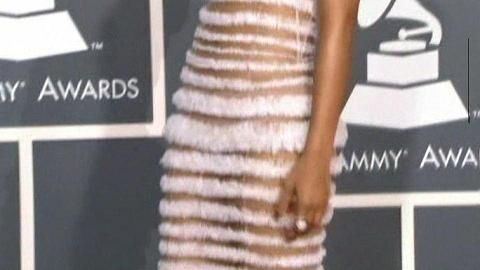
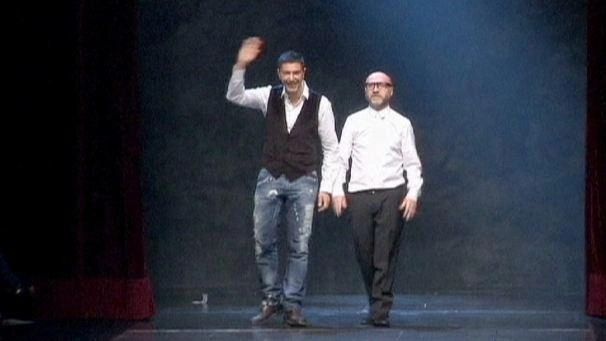
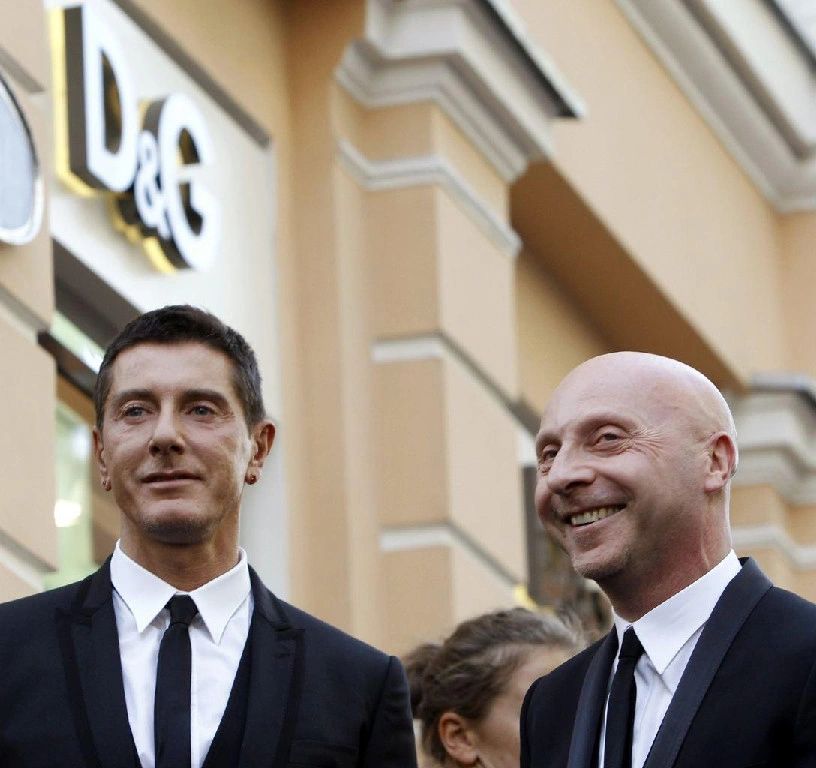
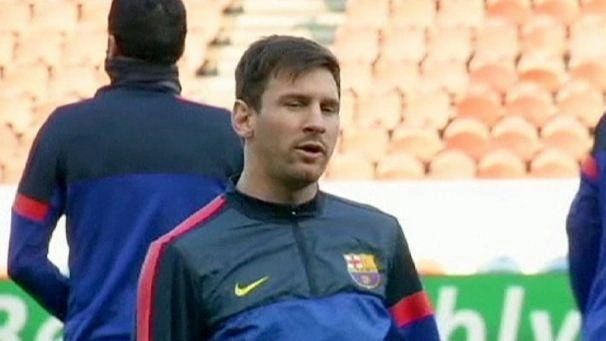
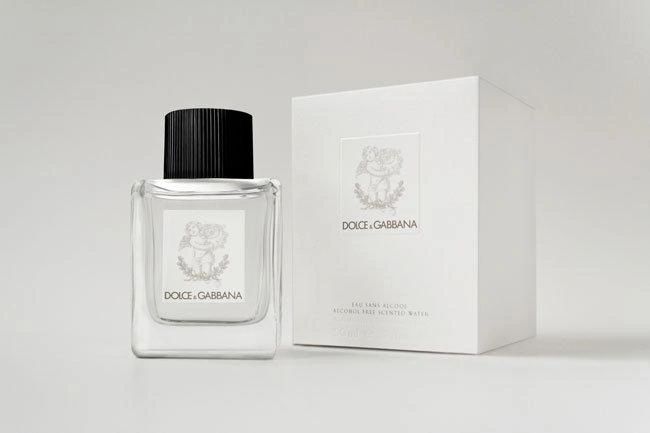

























































































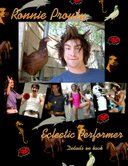











 AP Ohio Gov. Ted Strickland
AP Ohio Gov. Ted Strickland